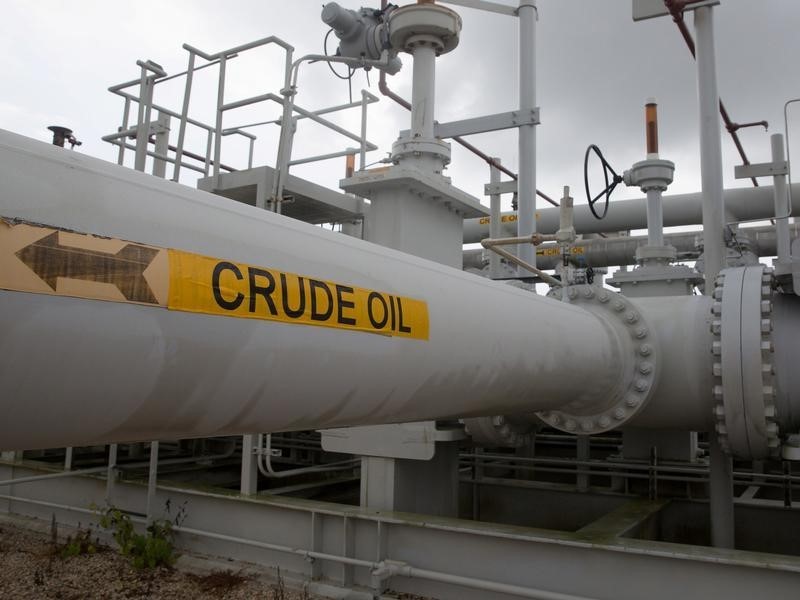By Noah Browning and Julia Payne
LONDON (Reuters) - Some oil refiners are picking up more crude cargoes at the last minute from locations nearby as uncertainty caused by the coronavirus outbreak discourages their more usual approach of making advanced orders, market sources said.
With little clarity about how long national lockdowns to prevent the spread of the virus will last and whether prices have further to fall, refiners are wary of longer-term deals.
Physical crude prices have been pummelled as measures to contain the pandemic have kept people at home and hammered demand for jet fuel, gasoline, diesel and other products.
"Buying anything but prompt barrels is like playing the lottery," a major East Asian buyer told Reuters.
Sellers have struggled to find buyers even on heavily discounted cargoes from West Africa or other producing areas that would mean a longer journey to major centres.
One Mediterranean refining source said his company usually ordered one or two months in advance for a cargo with a three-week travel time. "Now, we only take Mediterranean grades last minute that arrive in a few days," he said.
Another Mediterranean source said: "Many refineries need to plan short term as product demand is a moving target."
The price structure of the oil market has added to the challenges, tipping into heavy contango where spot prices trade below futures prices. This usually encourages oil to be stored for sale at higher prices at a later date.
"These ultra-low flat prices coupled with extreme market structures tend to make crude pricing even more complex given the different time stamps and benchmarks involved for different crudes," energy consultancy JBC said.
A record spread between oil futures contracts and dated Brent (LCOc1), the benchmark for pricing half the world's physical crude cargoes, has encouraged caution as traders try to work out when the market will stabilise.
In a bid to restore balance, OPEC and allies agreed to cut output by 9.7 million barrels per day (bpd), or almost 10% of global supply, in May and June. The United States and others also offered to pump less. But even this may not be enough when demand has slumped by as much as 30%.
Faced with an uncertain outlook, even rare buying interest draws a cautious response.
Indonesia's Pertamina said this week it planned to import more crude and fuel to take advantage of cheap prices. Traders said it had recently issued a tender to buy 2 million barrels every month in the second quarter.
But one regular supplier said: "It's tough to fix on prices for later in the year this far out."
